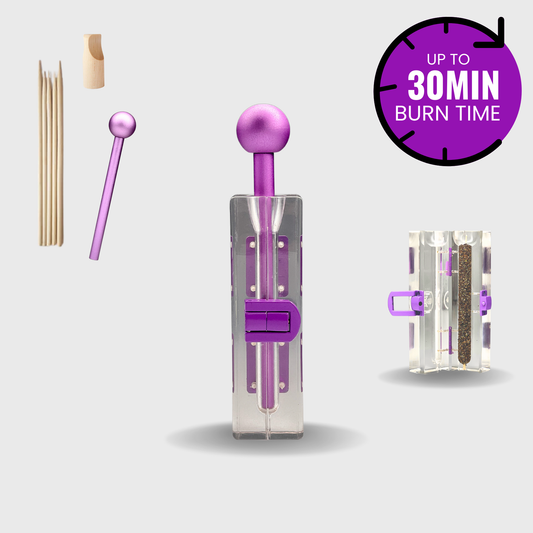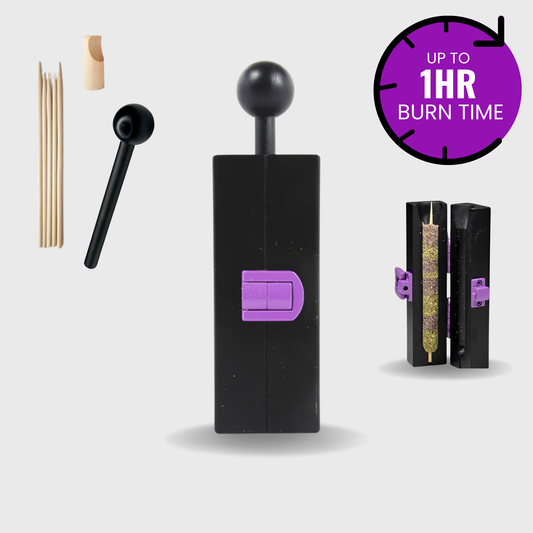⬇️ Prefer to listen instead? ⬇️
- Weldon Angelos, a former marijuana prisoner, met with Alice Johnson to advocate for cannabis clemency.
- 67% of Republicans support letting states legalize marijuana without federal interference.
- Marijuana industry donors gave over $1M to Trump’s inaugural fund expecting reform.
- DEA leadership delays are stalling federal marijuana rescheduling efforts.
- Public support for marijuana reform crosses party lines, including Trump’s voter base.

Marijuana Reform: Will Trump Act on Clemency?
Former marijuana prisoner turned criminal justice advocate Weldon Angelos recently met with White House officials—including Alice Johnson, the new federal "pardon czar"—as pressure builds for meaningful cannabis clemency. Public support is high, and industry players are investing because of promises of reform. Everyone is asking: will Trump follow through or not? Here's what you should know about changes in marijuana reform and cannabis clemency right now.

Shown Above: Photo Banner of THE WELDON PROJECT featuring Weldon Angelos
Meet the Activist: Weldon Angelos and the Cannabis Clemency Fight
Weldon Angelos was once a rising hip-hop producer whose life was upturned by outdated federal marijuana laws. In 2003, he was sentenced to 55 years in federal prison for selling cannabis—a minor offense made major by the inclusion of firearms he legally owned, though they were never used. The severity of the sentence raised bipartisan eyebrows, eventually turning Angelos into a powerful symbol for criminal justice reform.
After serving 13 years, Angelos was released in 2016 and later granted a full pardon by President Donald Trump in 2020. Since then, he has become a dedicated advocate for cannabis clemency and criminal justice reform. As the founder of The Weldon Project, Angelos focuses on securing the release of others still imprisoned for marijuana-related offenses. His project, MISSION [GREEN], is especially focused on freeing cannabis prisoners and repairing the harms caused by prohibition policies.
During a recent visit to the White House, Angelos met with key officials, including Alice Johnson, and left the meeting energized. He described Johnson as “the perfect person for this role,” given her lived experience and compassion, signaling hope that the federal government may be preparing for a new wave of clemency for cannabis offenders.
Who is Alice Johnson? From Prisoner to Pardon Power
Alice Marie Johnson represents one of the most compelling redemption stories in recent American history. In 1996, she received a life sentence without parole for her role in a non-violent drug trafficking operation. After serving two decades, she gained public attention due to advocacy from Kim Kardashian West and others. In 2018, President Trump commuted her sentence, and in 2020, he granted her a full pardon.
Now serving as the federal government's first official "pardon czar," Johnson reviews clemency petitions and recommends which ones should be approved. This job is especially important as more people want marijuana reform.
Having her appointed shows a change: instead of people who don't know what it's like to be in the system, someone who has lived it is helping make decisions. Johnson's job could change which clemency cases get attention, putting more focus on minor marijuana crimes that have hurt minority groups the most.
By giving this job to someone like Johnson, who has been through the system's failures, the Trump team might be showing they will focus on clemency as something to talk about for his campaign. It's not clear yet if this will lead to real change or just be for show politically.

Clemency vs. Marijuana Rescheduling: A Crucial Legal Distinction
When people talk about marijuana reform, they often mix up clemency and rescheduling. Both are important for cannabis policy, but they do different things—and both are needed urgently.
What is Cannabis Clemency?
Cannabis clemency is when someone gets a pardon or commutation. This applies to people currently in prison or those with old criminal records because of marijuana offenses. Clemency can:
- Give prisoners immediate help.
- Wipe away criminal records and give back civil rights.
- Recognize unfair sentences from old laws.
This is about fixing past wrongs. Clemency directly affects people's lives. For example, it matters for the thousands of people still in prison for things that are legal in many states today.
What is Marijuana Rescheduling?
Marijuana is still listed as a Schedule I substance under the Controlled Substances Act. This puts it in the same group as drugs like heroin and LSD. Changing marijuana's schedule (or taking it off the list completely) would:
- Put cannabis on a lower schedule.
- Allow more science research.
- Let states sell cannabis across borders and give federal protection.
- Make it easier for legal cannabis businesses to use banks.
Rescheduling affects the cannabis industry and public health rules more broadly. But clemency gives real help right now. Changes to legal status shape the future, but clemency changes lives today.

Trump Marijuana Policy: Bold Promises, Murky Follow-Through
Donald Trump’s stand on marijuana policy is a mix of showing support, taking specific actions, and doing what makes political sense.
High-Profile Pardons vs. Systemic Action
To Trump’s credit, he gave out several important pardons when he was president, including for Weldon Angelos and Alice Johnson. These actions won praise from people who wanted criminal justice reform and made Trump seem like a reformer to his supporters who liked clemency. But these public acts didn't lead to big policy changes across the board. He didn't sign an order to release more groups of cannabis prisoners. And no federal policy updates were made to stop unfair sentences in the future.
Also, records show that Trump's inauguration committee took at least $1 million in donations from cannabis industry leaders. Many of these donors hoped to see changes like legalizing marijuana, getting easier access to banks, and removing government hurdles. But few of the things the industry wanted actually happened while he was in office.
DEA Policy: A Contradiction in Cannabis Reform
Making things more confusing is that Trump appointed DEA leaders who have spoken strongly against cannabis. Acting DEA Administrator Derek Maltz said marijuana is a gateway drug. He also linked it to mental health problems and crime. Saying things like this goes against what the public thinks and what science research shows. This makes people doubt the administration was serious about reform.
This disagreement inside the government hurts Trump's position as a candidate who might support cannabis. It stops government action while he appears helpful in public moments.
The Rescheduling Process: On Hold?
In 2023, the Biden administration took a step by asking the Department of Health and Human Services (HHS) to review how cannabis is scheduled. HHS said marijuana should be moved to Schedule III. This would be a big policy change. The final decision is up to the DEA—but reports say that process is now stalled.
This holdup in the government makes the future of federal reform unclear. Trump’s possible re-election adds more doubt. This is especially true because his past administration didn't want to change the federal classification of cannabis. People who want reform worry that without pressure, any progress made could stop if leaders don't agree.

Republican Voter Base: Surprisingly Pro-Reform
While leaders hesitate, voters show a different picture. Contrary to what some might think, support for marijuana reform isn't just for liberals. A recent poll showed that:
- 🟢 70% of all voters are for changing cannabis's schedule.
- 🔴 67% of Republicans think states should be able to decide on legalizing marijuana without the federal government interfering.
That's a surprising level of agreement between parties today. For Trump, paying attention to this feeling could help him politically. This is especially true among conservatives who like individual freedom and younger voters.
Cannabis PACs and Political Strategy: Flattering Trump for Reform?
Marijuana industry lobbyists and groups that spend money on elections (PACs) are playing tough politics leading up to the 2024 election. Big spending groups funded by companies like Trulieve have been running ads that make fun of Biden for not delivering full reform. One ad targets Canadian marijuana companies and suggests Trump is better for American cannabis jobs.
These ads aren't just praise. They are planned efforts to push Trump and other candidates to take clearer stands on marijuana reform. By pointing to his past clemency actions, these groups might be betting that praising Trump's record will make him do more. This is especially true if he thinks it makes him more popular.
But whether trying to appeal to his ego leads to change is still unknown.
The Power of Public Protest: Clemency Recipients Rally for Change
Policy change doesn’t only happen in private meetings. Just days before Angelos met with White House staff, several former cannabis prisoners—people Trump had freed—stood outside the White House. They held signs, shared their stories, and publicly thanked the former president.
They had two main messages:
- They were thankful for being granted clemency.
- They demanded that this kindness be shown to the many others still in prison.
These events are strong ways to share stories. They remind people that marijuana reform isn't just an idea. It's about families, future chances, and the fight to be free. And with more support from both major parties, the stage is set for more public, emotional calls to keep cannabis clemency important.

Why Clemency Should Matter to Everyday Cannabis Users
If you've ever bought marijuana legally or used it in your state without worry, it's worth remembering that the same plant is still leading to people getting decades in prison. The unfairness is clear. And fixing it means making cannabis clemency a main part of the marijuana reform talk.
This issue isn't far away. It affects:
- Veterans given sentences for using medical cannabis.
- Parents kept from their children over small amounts of flower.
- Young adults facing big problems for life because of minor possession charges.
Justice for cannabis users means being fully free—free from prison, from criminal records, and from being looked down on.

How You Can Push for Cannabis Clemency
Even if federal reforms are slow, the cannabis community can push for change. Here's what you can do:
- Support groups like The Weldon Project that focus on clemency and fairness.
- Share the real stories of people still in prison.
- Write to your lawmakers and tell them you want federal clemency programs.
Pressure from people creates cultural change. It's about getting things moving, not waiting for political campaigns to decide when it's time.

Purple Rose Supply Stands for Cannabis Justice
At Purple Rose Supply, we do more than just make great cannagars. We believe in a cannabis culture based on fairness, equal treatment, and justice. We think marijuana reform isn't done until nobody is treated like a criminal for a plant that powers legal businesses and helps millions find calm, relief, or just happiness.
Our products celebrate freedom—but we also don't forget the people who are still locked up.
Every time you light up, let it be a moment to be thankful, aware, and ready to act.
TL;DR: What’s at Stake with Trump and Cannabis Clemency?
Weldon Angelos recently meeting with Alice Johnson shows that the chance for real marijuana reform might be opening again. For Trump, cannabis clemency could be something he's remembered for—or just another chance he missed in an area where people strongly agree and there are many personal stories.
But things won't truly change unless voters, activists, and people who love cannabis keep pushing. Let's use cannabis legally—and show the way for those still stuck because of prohibition.




